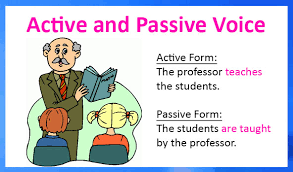- Describe a uniform you wear (at your school or company).
- When you wear it
- Who bought it for you
- What it looks like
- How you feel about it
- I don’t need to wear a uniform these days
- But I recount (=tell, narrate) my school days when it was mandatory to put on the school uniform
- The fundamental idea of the uniform is to treat everyone equally
- Some companies have made regulation of putting on the uniform for a variety of reasons
- Some large corporations (=company, firm) believe the uniform decreases the dress-based discrimination (=prejudice, bias) at the workplace
- My parents bought me the uniform every year. And the fun part was that I knew that it was going to be the same every year, but getting rid of the old one offered renewed joy
- I always loved my school uniform. It had a combination of blue and white
- We had to wear blue pants (X = not pant) and a white shirt
- More than the uniform, I was always fascinated (=strongly attracted) by the belt. It was a stripe-designed strap with the emblem (=symbol, figure) of our school on the plate style buckle
- I also loved our school logo on the shirt. It was beautifully designed with a lamp and Goddess Saraswati in it
- On a sports day, usually on Saturdays, we had to put on a round-necked blue T-shirt with grey-colored sweat pants
- While talking to you right now about my school uniform, it takes me back to my golden days of life
- School time is something that you treasure (=cherish) forever, and If I had an opportunity to ask for something now, I would certainly like to have those golden days back.
- We all looked amazingly handsome and beautiful in our school uniform. No matter how pricey clothes that we buy now and put them on, but there’s nothing like our uniform. It was simple and attractive. Maybe it’s linked to our school time, and then we were quite young and restless hence, with the uniform, so many things are attached
- Some friends of mine hated to put on the uniform, citing it was compulsion imposed on us because we looked upon students who were going to college or university at that time, and they were exempted from this code of wearing
- But if I talk about myself, I never shared such a mindset then. On the contrary, I enjoyed it. Yet I’ve my old uniform of the year 10 as reminiscences (=memory, recollection), and I take it out, at times, to relive those moments. So, it comes down to how people think on this point
Follow-up questions:
- Why should students wear uniforms?
Wearing a school uniform is a symbol of identification and pride, and it also makes a personality for a school. It’s the imperative piece of being a school student. It also teaches students to take pride in their appearance. Wearing a uniform is all about being in the organization or school together
2. On what occasions should people wear uniforms?
It depends upon who (m) you’re associated with, and you need to size up the occasion (that) you will be attending. Otherwise, you don’t feel confident if you’re over or underdressed, so we’ve to ensure that we’re dressed in an outfit that is the right to the occasion. For example, in a school, the uniform gives a sense of togetherness, and we all look good, no matter whether we are thin or doughy (=fat) or whatever. When we grow up and start our career, some corporations have a dress code. You’ve no choice but to align with the philosophy and policy of the corporation. In some cases, when we’ve got an annual meeting or any roadshow for promotion, we wear uniforms.
3. Should companies ask employees about the design of their uniforms?
Well, my answer is ‘Yes’ and ‘No’ both because there could be several suggestions if asked. Imagine a corporation which has over 1,000 employees, people will pour in ideas and recommendations, and everyone has his own preference. In that case, it’s slightly tricky to narrow down the final decision. But this exercise can be used for gathering ideas and preferences and anything that comes close to the conclusion of the management, that dress code should be taken.
4. Can people tell someone’s personality by his or her clothes?
Of course, yes. I believe that your clothing sense reflects your personality and, in some cases, your royalty, too. People get attracted to those who have a neat and sharp clothing sense. And it also depends upon an occasion. I’ve seen people wearing a pair of jeans and a round-necked T-shirt while attending any wedding event, and they certainly look horrible in that. It’s tacky (=tasteless, gaudy). At the same time, when somebody is dressed in an appropriate outfit grabs the attention of the audience.
5. What color would catch people’s attention most?
It’s subjective. For some boys and men, they don’t imagine trying colors other than black, white, navy blue, and beige. And bright colors look good on girls. In fact, I feel jealous because women have a plethora of colors to choose for their attires, whereas boys have no such choices. It’s sad (with a smiling face).
2. Describe a special day that made you happy.
- When it was
- What the occasion was
- Why it made you happy
- There are countless moments and days when I felt happy
- In fact, I’m grateful for something every day as I listen to my inner child
- The special day that I recount (=tell, narrate) now is my last birthday. Usually, people love their birthdays, but any birthday which brings a surprise is incredible
- That’s what happened to me last year
- I had been thinking of buying the latest iPhone over the months, but it was beyond my budget
- Additionally, I didn’t want to force my parents to buy me an expensive phone, so what I did was I started to save some money every month
- Yet I was short of around ₹30,000, and it was a big amount for me to manage
- I don’t know how my parents observed my longing (=wish, yearning) for a new phone, but I’m sure they kept their eyes on this wish of mine
- I remember this surprise because it gave me a smile of the century on my face
- I got up in the morning and was waiting for my cup of tea to be served
- Instead of tea, my mommy hugged me and gave me the gift-wrapped box
- I asked her what was in it. She said, “you open it up and see yourself”
- And guess what! It was iPhone XR. I couldn’t believe that for a while, but it was happening
- The thing that I had been longing for (=wanting, wishing, desiring) quite some time was right there in front of my eyes
- I felt I was on cloud 9 (=state of perfect happiness) and thanked my parents for that incredible gift
- I know it’s something beyond my imagination and never knew that my parents were so much attentive to my wishes
- Anyway (X= not anyways), parents are always there to cheer your special moments
Follow-up questions:
- What are some things that made you feel happy?
There are many things, in fact, that makes me feel great many times. Whenever any positive piece of news that breaks for which you have been waiting for so long is one of them. I cheer when Team India wins the match, or also I feel elated (=happy) at the playing opportunity for either an indoor or outdoor game. I personally believe that fulfilling hobbies bring unimaginable (=incredible, unbelievable) joy to your life.
2. Do you think artistic activities can make people happy? (Why/Why not)
I’m not sure about it because it varies from person to person. I’m the guy who is not overly inclined to artistic activities, so it doesn’t matter to me. But I’ve seen a lot of people enjoying themselves when they employ themselves in creative activities. There’s a classic case in my family. My sister lives in a world of arts, so she finds tremendous joy whenever she gets associated with artistic activities.
3. Do you think people who have more talent are happier than others? (Why/Why not)
I don’t agree with this notion. Happiness has nothing to do with talent (=ability). It’s all about how you see your life and try to extract pleasure (=happiness) from small things around you. For example, I feel much convinced when I feed animals, but my neighbor, who is a renowned doctor, abhors (=hates) it. He might be feeling happy with other activities. I’ve also seen talented people being grumpy (=bad-tempered, waxy), and at the same time, people who live by the road enjoy better than us on many occasions.
4. Do you think money makes people happy?
My answer is ‘Yes’ and ‘No’ both. Money is not everything but not lesser than anything, too. That’s a paradoxical (=contradictory, incongruous) statement, but it’s true for sure. Life becomes beautiful with money, but it also becomes trash if you’re deprived (=strip, deny) of sound health. So, money does buy medicines but unable to get your health on many occasions. Again, I’ve seen the happiest people with lesser wealth and the most frustrated with riches on this earth.
5. Are the things or events that make people happy today the same as several decades ago?
Of course, the definition of happiness, excitement, surprise, and other emotional triggers remains unchanged. Maybe the mode, nature, and sources of joy might have changed with time. For example, people in the past enjoyed a cup of tea in the garden, and today they go to a cafe.
6. Why do people feel happy when they are with members of their family?
By all means (=of course), they’re your family, and for every moment, whether we’re happy or not, they stand by us. Another important aspect is that we don’t need to fake anything with them. Whether we are good or bad, they love us untiringly and incessantly (=regularly, constantly, endlessly). Such unconditional love ties the members of the family. To me, the family is first!
7. What are some examples of family activities that make people happy?
I guess there are many family activities that make our lives whole. A cozy dinner with your folks or maybe going on holiday with them or could be with them for watching just a movie are some of the activities. I personally like a candlelit dinner with my girlfriend at the beachfront restaurant, which provides the perfect end to the day.
8. Some people say the happiest time in people’s lives is the period when they are at school. Do you agree?
There’s no doubt about it because we’re young and restless with no external concerns of career-making or sustaining any type of relationship or so. In school time, we enjoyed small things which seem to be inconsequential (=unimportant, insignificant) if we think about them right now, but that’s the all joy that we had. We never judged anyone or were judged by our friends, too. We seized every moment and enjoyed life more even if when something went wrong, it didn’t impact much the way it happens now. I wish I could reclaim those golden days of my life now, but it’s just not possible.
9. Do young and older people find happiness in the same things?
Yes, I think so. Some moments and activities bring the same joy regardless of your age and other factors. I can give you an excellent example to substantiate (=confirm, prove) my agreement. My dad, mommy, sister, and I play Ludo game on the tablet, and you’ll be surprised to see the intensity, excitement, and happiness when we beat each other. We all become kids once again and fight hard as they do so.
3. Describe a time you were sleepy but had to stay awake.
- When it happened
- Why you were sleepy
- Why you had to stay awake
- And how you stayed awake
- Sleep has been called ‘force multiplier’. It means it can worsen or enhance your performance
- I personally cannot stand the sleep deprivation (=hardship, loss) and need at least eight-hour sleep to stay in the right mood
- Usually, I ensure to have deep sound sleep, but there are occasions where I couldn’t keep up the same
- I remember the night before the paper of Math (X= not Maths) during the Year 12 exam. I always struggled with calculus in my school time, so needed additional time to cover my study
- As I said that the course of math always scared me, so it was boring (=tedious). And you know that when you do some boring job, it makes you feel drowsy and uninterested
- So it happened that night particularly. I had to cover my pending portion of the exam preparation, and I felt sleepy
- I hated that moment, but I knew that if I hadn’t stayed awake, I would have to pay a heavy price for it
- I had no choice but to stay awake at any cost
- Then what! People have their own ways to stay awake; some have energy drinks, and others believe having tea or coffee
- I don’t know how far it is true that such beverages containing caffeine help you stay awake, but it certainly doesn’t work for me
- If I’ve to stay awake for some reason, I will rather watch some interesting videos on YouTube or maybe music also
- So, during that hard time, I watched any song of my choice and got charged and got back to my studies, and then whenever I felt sleepy, I repeated the same
Follow-up questions:
- On what occasions do people need to stay awake even when they are tired?
There could be several occasions where you need to stay awake even if you hate to do so. When we’ve to write an exam, it’s an integral part, and I’m sure most students go through the same situation. When we grow up and are burdened heavily with some backlog of jobs, it takes away our sleep in order to meet the deadline. And the worst of all is when you have unwanted visitors at home, you don’t want to spare some time for them, but you do so just to sustain the relationship.
2. How do they keep awake when they are tired?
People have ways to keep themselves awake. The most common hack (=strategy, technique) on which people rely on is to consume any drink that contains caffeine. For example, tea, coffee, or energy drink. I’ve seen some people washing their faces with soda. They get a kind of instant zip (=oomph, vitality, vigor, verve) in their mood. I don’t know whether it works or not, but people do that. And there are some people who do some job that interests them the most. Like reading a novel or maybe watching some exciting series on Netflix or YouTube.
3. Why do people feel tired a lot nowadays?
Well! It’s not about these days or yesteryears. People get fatigued (=tired) owing to physical tiredness or psychological reasons. For example, students participate in sports competitions or play outdoor games, which certainly takes their toll because of excessive playing or working out exhaust them. While people who work go through extraordinary pressure of many things at the workplace, along with their own external concerns. The steep competition in the business or at the workplace keeps everyone on the toe forever, and it impacts adversely on their health.
4. What kinds of people lack sleep?
There could be many kinds! Some people work globally from their home place, and the time difference breaks their regular cycle of sleep. The classic example is people working with call centers. There are some people who remain under pressure at the workplace, or even those people who are under constant threat of losing their jobs in this competitive world are deprived of the sound sleep. Some people also suffer from insomnia, and that’s the worst thing we could expect. There could be many others, too.
4. Describe an experience when you played an indoor game with others.
- What you played
- Who you played with
- Why you played
- How you felt about it
- I play both indoor and outdoor games
- It all depends upon the opportunity and time availability, and on some occasions, it’s all about the company of friends or members of the family with who you are
- I personally love the game of Chess as it is a fascinating (=exciting, interesting) indoor game; usually, it’s played with two players
- But today I’m going to talk about another game, which is popular these days
- It’s Ludo, and it’s also known as Boardgame
- I went to my cousin’s place some days back, and happened to meet his friends there, too
- We were just killing time by gossiping, and one of his friends recommended to play Ludo game
- First, we decided to play on the cell phone, but later on, decided to change it to an iPad
- I find this game exciting, and for every move of your token, you need to use reasoning to beat your rival. You cannot roll your tokens randomly or without giving a thought. If you do so, you may lose
- This game is played with two to four players, and we decided to team up and played in the partnership of two each
- So, whoever brings all four tokens to the finishing square wins
- This game: if played with attention, it brings all sorts of emotional triggers, such as fear, excitement, jubilation, regret, and so on
- My partner and I were the winners in the end. However, we narrowly defeated our opponents because one of their partners had only one token left to the finish, and luckily we had two sixes, and my partner made it
Follow-up questions:
- Do you play any indoor games?
Sometimes I play indoor games, but I rather (=instead) prefer to play outdoor games more. I personally believe that the game must include physical efforts (energy busting) along with skills. For example, I get more satisfaction if I happen to play tennis, badminton, or cricket.
2. Do you prefer to play indoor games or outdoor games?
Outdoor games, any day. That will be the first preference. You get a different kind of joy when you play in the ground, field, or court. And, it also gives a workout to the body.
3. What indoor games did you play when you were a child?
I don’t remember all, but yes, there were games such as playing cards, especially Rummy, Ludo, Candy Crush, Indoor Bowling, and Puzzles, among others. Apart from these, we also played Indoor Obstacle Course and Follow the Leader.
4. Is there any particular indoor game that you liked (when you were a child?
I enjoyed playing all the games. If I have to single out my favorite one, I will go with ‘Road Rash’ on Xbox. There is a particular reason for it because you play it with simulation. It means as if you feel driving the bike, cutting your wave, kicking or getting kicked by your opponent, and so on. It’s really entertaining, especially when you come down from the cliff, staying in the altitude for seconds, and land your bike. You feel as if it were happening to you.
5. What sorts of indoor games do children play now?
I’m not sure about it, because I don’t have any kid in my family at the moment. But let me guess. I guess they play games on Xbox yet. There are countless gaming apps, but frankly speaking, I’m unable to think of any other game. Maybe I never thought of being asked such a question ever.
6. Do you play video games? And what kinds of video games do you like to play?
Yes, and I love it. If I had an opportunity right now, I wouldn’t wait for it. Car Racing and Road Rash are my favorite ones. There could be many other games, but I’ve no idea, I just play those games that offer me pleasure, and these are the games that make me excited and playful.
7. Is it good for young people to play video games?
I don’t see anything wrong with it. I know some people consider it (as) a bad habit, but I think otherwise for a variety of reasons. Video games make players think and make the judgment on their next moves, so it’s like applying your critical thinking. It is fun, isn’t (ain’t) it? In most games, you need to think rapidly and make your moves. If you fail to make the right decision, you face a defeat. In a nutshell, that prepares you at the elementary level to make the right decision, which can be helpful in the career later on.
8. What qualities should a team leader have?
Well! There is a list of qualities for team leaders, but it’s hard to have a composed team leader these days. I think the team leader should be, first of all, a clear communicator since he has to assign duties to team members and get things done on time. Furthermore, he should be confident for his team and patient when things go wrong. In many cases, team leaders wear a lofty (=high, elevated) ego and prejudice (=bias, discrimination), which kills the tempo of the team and impacts productivity. I personally believe that he should be fair, kind, and cooperative. If I’m in a fix (situation), he should roll his sleeves and stand by me.
9. Is teamwork important to individuals?
Yes, it is. In fact, it is of great significance. We must not forget that teamwork makes large corporations. Teamwork means professional diversity. Coordinated efforts give a sense of accomplishment and satisfaction to each team member. In some cases, team members learn from each other and develop skills. It teaches several professional traits without which it’s hard to make progress in the career.
10. What do you think about people spending too much time on computer games?
Anything too much always brings disappointment of any sort. I don’t know what drives people to spend their precious time on computer games excessively. It’s an addiction – an unwanted one for sure. I believe many people lose an opportunity to experience this beautiful world outside the four walls. It should be avoided.
5. Talk about something that you borrowed from your friend
- What it was
- When you borrowed
- From whom you borrowed it
- What you did with it
- Why you borrowed it
- No matter how old you are, you can keep lending or borrowing something somewhere in your life
- I guess it’s an integral part of our society. But it may not go well with everyone
- I remember having borrowed the motorbike of my neighbor once when I was in the final year of my college
- I remember that incident pretty well now. It was drizzling on that day, and I guess it’s the weekend
- My friends called and invited me to go to a movie. It wasn’t planned, but all of a sudden a couple of friends decided about this and connected each other.
- My motorbike was with the workshop for a regular mechanical service, and I didn’t have any vehicle to go and join them. I kept thinking about my options on how to come and go there, and eventually, I decided to borrow the motorbike from my neighbor for this friends’ gathering cum movie watching
- My neighbor, Aakash, recently bought KTM 200 Duke motorbike then. This motorbike was amazing, and I had a test drive of it on varied roads before. The engine had a great punch, and I guess its attractive design fails to age yet
- So, the joy of meeting with friends for a movie and driving the motorbike in the drizzle makes this event unforgettable for me. In fact, when I recollect this incident, I cannot fail to remember those crazy stunts that I performed on this motorbike. In fact, I shouldn’t have done that because I had borrowed it from someone, but you know when you are very young, you become restless and less thoughtful about certain etiquette. Anyway (X= not anyways), this question took me back to the memory lane of my school time
Follow-up questions:
- What do Indian people usually borrow?
In my country, well, it’s hard to think that what people borrow from one another. I guess it all depends upon the person and the way he has decided to live. For example, I’ve seen some people who believe not to lend or borrow. At the same time, there are people who cannot resist (=refrain from) this habit. I guess people borrow everything and all things from books to clothes to cars to motorbikes and even money or academic notes, too. I think people do that in any society.
2. Does borrowing things make people uncomfortable?
In most cases, I reckon it makes people uncomfortable as nobody likes to share his stuff with anyone except when someone is very close to him. I personally believe that it’s not a good habit, especially some people aren’t (=ain’t) expressive, and they don’t like to say ‘no’ to them, but at the same time, from deep inside they reject this idea. So, my point is why to make people uncomfortable for this undisciplined act.
3. What to do if you don’t want to lend something to others?
Don’t ask me this question because I’m very much infamous for being straight to my dealings with people. I’ve my ways to decline people’s requests on borrowing. I tell them in a straightforward manner, and my response will be, “Buddy, we’re friends and I respect and understand you and your need. But I never lend any of my stuff to anyone because, on many occasions, it leaves a bitter experience to either party. So, in this case, I’ve no option but to decline your request.”
4. Why do people dislike lending valuable items?
There could be many reasons for it. I think when you help someone by lending something, it may lead to forming a bad habit of dependency. Some people have a habit of relying on others for all their needs. In some cases, the lender faces inconvenience also. For example, if I happen to lend my motorbike to someone, I will face inconvenience in commuting. And, that’s the primary reason that people don’t like to lend their valuables.
5. What would you do if your friends didn’t give back what they borrowed from you?
Well! It all depends on the value of the stuff. If it is highly expensive, then I might pressure him to take my stuff back. If it has no high value, I may let it go and will never lend him anything to him.
6. Why do some people borrow things instead of buying them?
As I said, some people form a nasty habit of borrowing all the time. They are misers and don’t like to spend on themselves. That’s cheap, but what can we do in such a case? Nothing, I guess. You cannot change the habits of people, and they will remain as they are, no matter how many efforts we put in to explain to them. They’re just stubborn in wrong aspirations and demands.
7. What would you do if people don’t return the money they borrowed from you?
First things first, I will request him to give my money back. And if he is unmoved to my request, I may talk to his family for helping me get my money. If I fail here, I will involve people in acquaintance to pressure and convince him to get my money. When all the options are exhausted, I may take serious steps against him.
8. Why are people embarrassed when they borrow money from others?
One word answer is self-esteem. I reckon most people in the world don’t prefer to borrow from others unless they are in deep financial trouble. Self-esteem is invisible in the form, but it impacts us a great deal. It’s like a humiliation for sensitive people, and they feel uncomfortable and embarrassed.
9. Do you often borrow things in your daily life?
I try not to borrow anything ever in my life. Borrowing will be the last resort for me when all the options are gone. But this was not the case while I was studying. When I was in school, we borrowed all possible things from friends. But that’s a different time. For example, I took academic assistance from friends wherever I couldn’t cope with (X= not cope up with) certain parts of my studies. These all things are considered acceptable, but once you’re grown up, we’ve several external and internal concerns, and we keep negotiating them for ourselves and family. As long as you’re young and studying, I guess we can offer some leeway (=scope, space, headway), but certainly not when we’re grown up.
10. What things you usually borrow from your neighbor?
Uhhm, not much, in fact, nothing. Yes, once I borrowed the motorbike from my neighbor as mentioned in my previous question. That’s the only incident of borrowing that I recollect now.
11. How do you like when some people borrow money from others?
I don’t see it as a good habit and advise people not to burden themselves on someone for their needs. If there’s a dire (=desperate, critical) situation, they can certainly think of borrowing but not more often. The reason behind this is because everybody is mired (=entangled, trapped) with his own budget and responsibilities these days. It’s hard for people to help others.
12. What kind of problems are associated with borrowing things?
On many occasions, what I’ve seen is that it leaves a bitter experience. For example, when we lend something to someone, they don’t return our stuff on time or sometimes they damage and return it. As far as financial assistance goes, there is a chance that you may lose your money in a relationship. When you try to get your money back, it kills the bonhomie (=sweet) relationship that you’ve developed over the years. In some cases, it leads to the exchanging of unspeakable arguments also.
13. What is your opinion about the phenomenon of borrowing in society?
As long as we’re young, it’s all acceptable to borrow, or to lend, or to even share your things. These days, I’ve noticed that the moment you become financially strong, some people, or friends, or your relative will flock around you for benefits. It’s a dangerous phenomenon that’s emerging in our society. At the same time, I also believe in charity. If you’re financially strong and could help others – maybe, in the form of lending in the beginning and you know that it won’t be returned if there is the case – you should move ahead and help the needy in your acquaintance.









